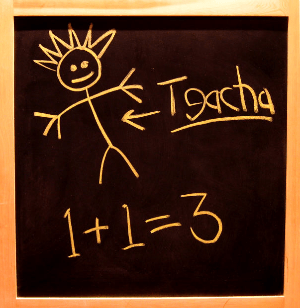Science Says This Is A Fun Way You Can Get Better At Multitasking
rst, the bad news: your brain was never designed to multitask well: To put it bluntly, research shows that we can’t multitask. We are biologically incapable of processing attention-rich inputs simultaneously. Across the board multitasking lowers productivity: Our results show that multitasking is bad for productivity even if one is not concerned with average duration. Neither gender is better at it: We do not find any evidence for gender differences in the ability to multitask. But if multitasking doesn't work,…
2 minutes
3 Lessons From History’s Greatest Geniuses That Will Make You More Creative
Reflect On What You Are Trying To Accomplish Don't rush in. Plan. Think about what you're trying to do and what it takes to succeed. Via Creating Minds: An Anatomy of Creativity Seen Through the Lives of Freud, Einstein, Picasso, Stravinsky, Eliot, Graham, and Ghandi: ...the lessons that the rest of us can learn from individuals who are highly creative. I culled three: (1) Creative individuals spend a considerable amount of time reflecting on what they are trying to…
2 minutes
The Best Way To Motivate People
phasize forward progress -- not for the sake of the project, but for your team members. Harvard's Teresa Amabile's research found that nothing is more motivating than progress in meaningful work and nothing more taxing than setbacks. Via The Progress Principle: Using Small Wins to Ignite Joy, Engagement, and Creativity at Work: This pattern is what we call the progress principle: of all the positive events that influence inner work life, the single most powerful is progress in meaningful work;…
2 minutes
Is a happy day a creative day?
verall, the more positive a person’s mood on a given day, the more creative thinking he did that day." There was even a carryover effect for the next two days after. Want to be more creative? Get happy. Via The Progress Principle: Using Small Wins to Ignite Joy, Engagement, and Creativity at Work: Our diary study revealed a definitive connection between positive emotion and creativity. We looked at specific emotions as well as overall mood (the aggregate of a person’s…
2 minutes
How To Coach The Best Performance Out Of People, According To Research
xplanation, demonstration, imitation, correction, and repetition." Break down proper technique, quickly correct errors and get them to repeat until it's second nature. Via The Talent Code: Greatness Isn't Born. It's Grown. Here's How: Gallimore and Tharp recorded and coded 2,326 discrete acts of teaching. Of them, a mere 6.9 percent were compliments. Only 6.6 percent were expressions of displeasure. But 75 percent were pure information: what to do, how to do it, when to intensify an activity. One of Wooden's…
2 minutes
How To Remember Anything, According To Research
e best way to pick a password or hiding spot you'll remember is to choose one quickly because you want something that will return to mind quickly: Via Why We Make Mistakes: The key to picking a good hiding place is hiding place is making a quick connection between the thing being hidden and the place in which it is hidden, says Alan Brown. Brown is a professor at Southern Methodist University who has studied where and how people hide…
3 minutes
Is it true that “when you smile the whole world smiles with you”?
a manner of speaking, yes. By smiling we influence others to smile. People judge things more positively while smiling, so our own smile can set off a chain reaction causing more positive encounters. Via Choke: What the Secrets of the Brain Reveal About Getting It Right When You Have To: The researchers found a chameleon effect. When confederates rubbed their faces, so did the student, and when confederates shook their feet, the participant did the same thing. This was…
2 minutes
5 New Ways To Feel More Powerful, Backed By Research
e military makes soldiers stand up straight for a reason; there's an implicit connection between posture and power that has been demonstrated time and time again. Want to increase confidence? Make yourself tougher? Stand up straight. Clench your fists. Gestures should be palm down. Know how to speak with power. Deepen your voice. Speak first. Speak often. Repeat yourself. Interrupt people. Don't laugh. Elevate yourself when standing. Sit in the center during meetings. Dress appropriately. It makes a difference. People…
1 min read








